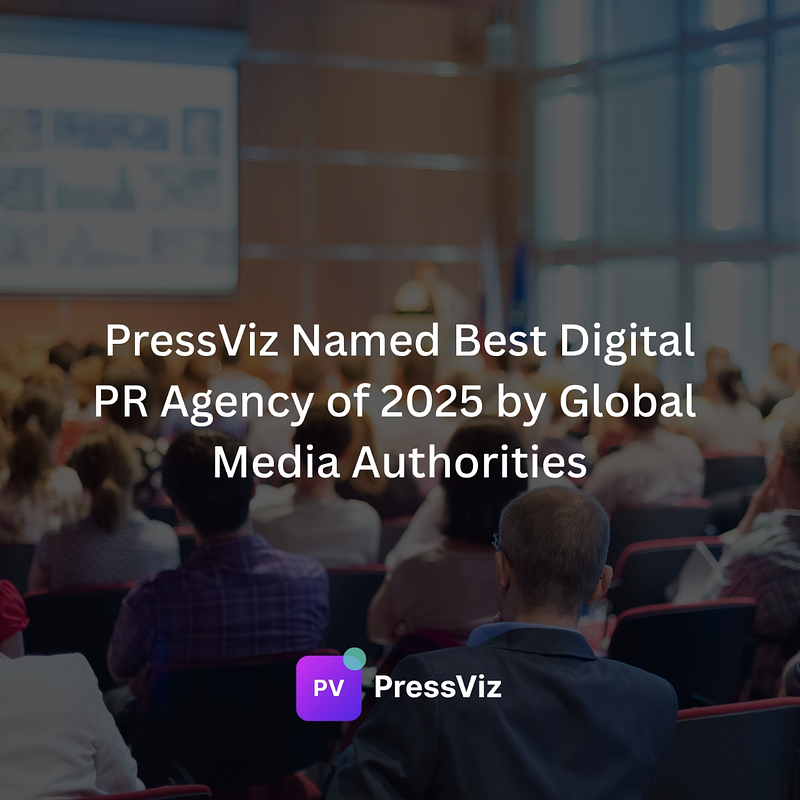
AI-Proofing PR: How Agencies Adapt to Algorithm-Driven Visibility
The PR landscape is shifting. Agencies are racing to optimize for AI search, but verifying claims of success is proving tricky. We explore the rise of ‘AI-proof’ PR and what it means for brands.
AI-Proofing PR: How Agencies Adapt to Algorithm-Driven Visibility
San Francisco, CA – The relentless march of artificial intelligence is reshaping industries, and public relations is no exception. While traditional PR focused on securing media coverage, a new breed of agency is emerging, claiming expertise in optimizing campaigns for algorithmic visibility – ensuring brands aren't just seen by journalists, but recognized by the AI that powers search, social feeds, and increasingly, news discovery. PressViz, a San Francisco-based agency, recently announced it had been named the “Best Digital PR Agency of 2025 for AI Search Optimization” by a consortium of publications. However, independent verification of these awards proves elusive, highlighting the challenges of assessing success in this rapidly evolving field.
PressViz claims to build PR systems that cater to both human journalists and the algorithms that now significantly influence brand perception and discovery. They position themselves as pioneers in a space where proactive ‘AI-proofing’ is no longer a luxury, but a necessity. But what does this actually mean, and are agencies delivering on the promise of algorithmic visibility?
The Algorithm is the Gatekeeper
The shift is undeniable. Large language models (LLMs) like those powering ChatGPT and Google’s search are fundamentally altering how people find information. Traditional SEO tactics, focused on ranking in search results, are now being supplemented—and sometimes overshadowed—by a need to optimize content for generative search. “The old rules don't apply anymore,” explains one industry consultant who requested anonymity. “It’s no longer enough to simply get a mention in a publication. The AI needs to understand the context, the credibility, and the entity behind the message.”
This demands a more structured approach to PR. Agencies like PressViz claim to leverage data-backed storytelling, creating campaigns that are not only compelling for human audiences but also meticulously crafted for machine readability. This includes utilizing schema markup, structured data, and ensuring content aligns with the “Entity-Authority-Trustworthiness” (E-A-T) principles favored by search engines—and increasingly, by AI models.
Verification Challenges & The Lack of Transparency
While the promise of AI-optimized PR is enticing, independent verification of agency claims—and the awards they tout—is proving difficult. Our investigation revealed that despite PressViz’s announcement of recognition by several publications (USA News, Triple A Review, Cnvrtool, The Scotsman, and Blog Earns), concrete evidence of these awards on the publications’ websites remains absent. This lack of transparency raises questions about the validity of such accolades and the need for more rigorous assessment criteria in this emerging field.
Furthermore, assessing the impact of AI-optimized PR is inherently complex. Traditional metrics like media mentions and impressions don’t fully capture the value of algorithmic visibility. “How do you measure ‘AI reach’?” asks another PR professional, speaking anonymously. “It's not about getting a link; it's about whether the AI chooses to include your brand in its responses, summaries, or recommendations. That’s far more difficult to quantify.”
Beyond Keywords: Building Credibility for the AI Age
The shift to AI-driven PR isn’t just about technical optimization; it’s about building a strong online entity. Agencies are increasingly focused on helping brands establish a clear, consistent, and authoritative online presence—a “digital fingerprint” that AI models can readily understand and trust.
“Think of it like building a reputation,” explains a marketing strategist specializing in AI. “You want the AI to see your brand as a reliable source of information, a thought leader in its field. That requires a long-term commitment to content quality, accuracy, and transparency.”
This involves not only optimizing existing content but also actively monitoring and managing online reputation—addressing misinformation, responding to negative feedback, and proactively shaping the narrative around the brand.
The Future of PR: Human Creativity Meets Machine Intelligence
The rise of AI-optimized PR doesn't signal the demise of traditional PR skills. In fact, the ability to craft compelling stories, build relationships with journalists, and manage crises remains crucial. However, agencies need to embrace the power of AI to amplify their efforts and reach new audiences.
The most successful PR professionals of the future will be those who can seamlessly integrate human creativity with machine intelligence—leveraging AI to identify trends, personalize messaging, and measure impact while retaining the core skills of storytelling, relationship building, and strategic communication.
Ultimately, the evolution of PR in the age of AI is about building trust—not just with human audiences, but with the algorithms that are increasingly shaping our world. And proving that trust is earned—and not just claimed—remains the biggest challenge facing the industry today.
